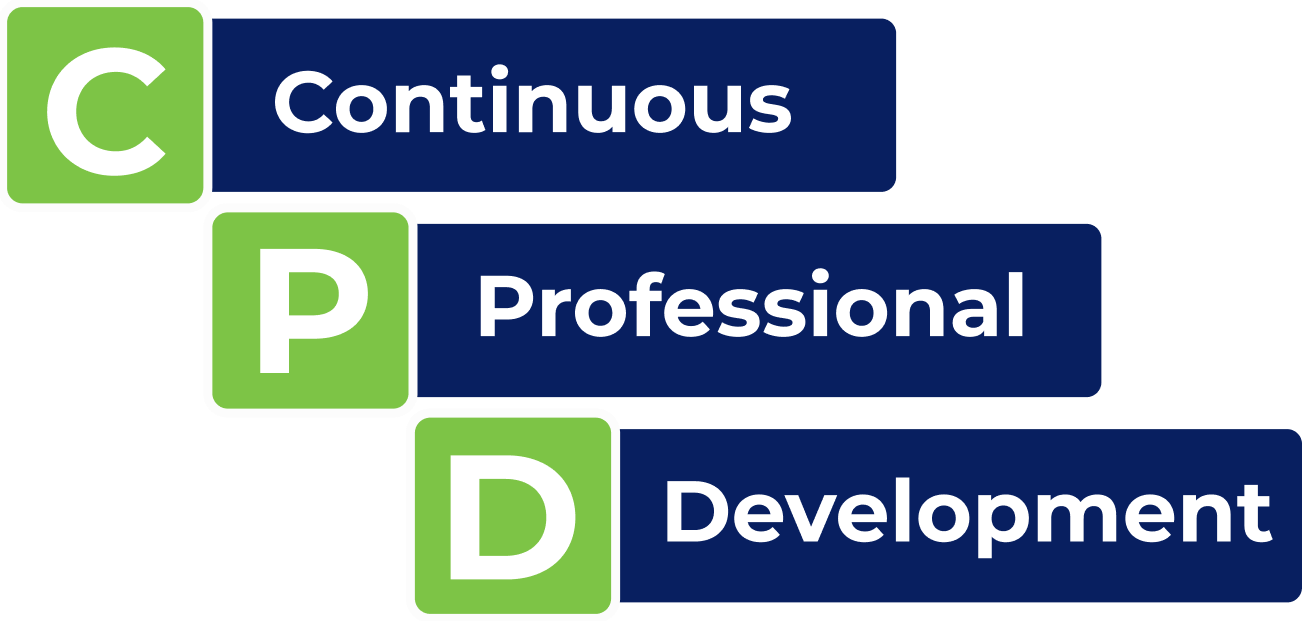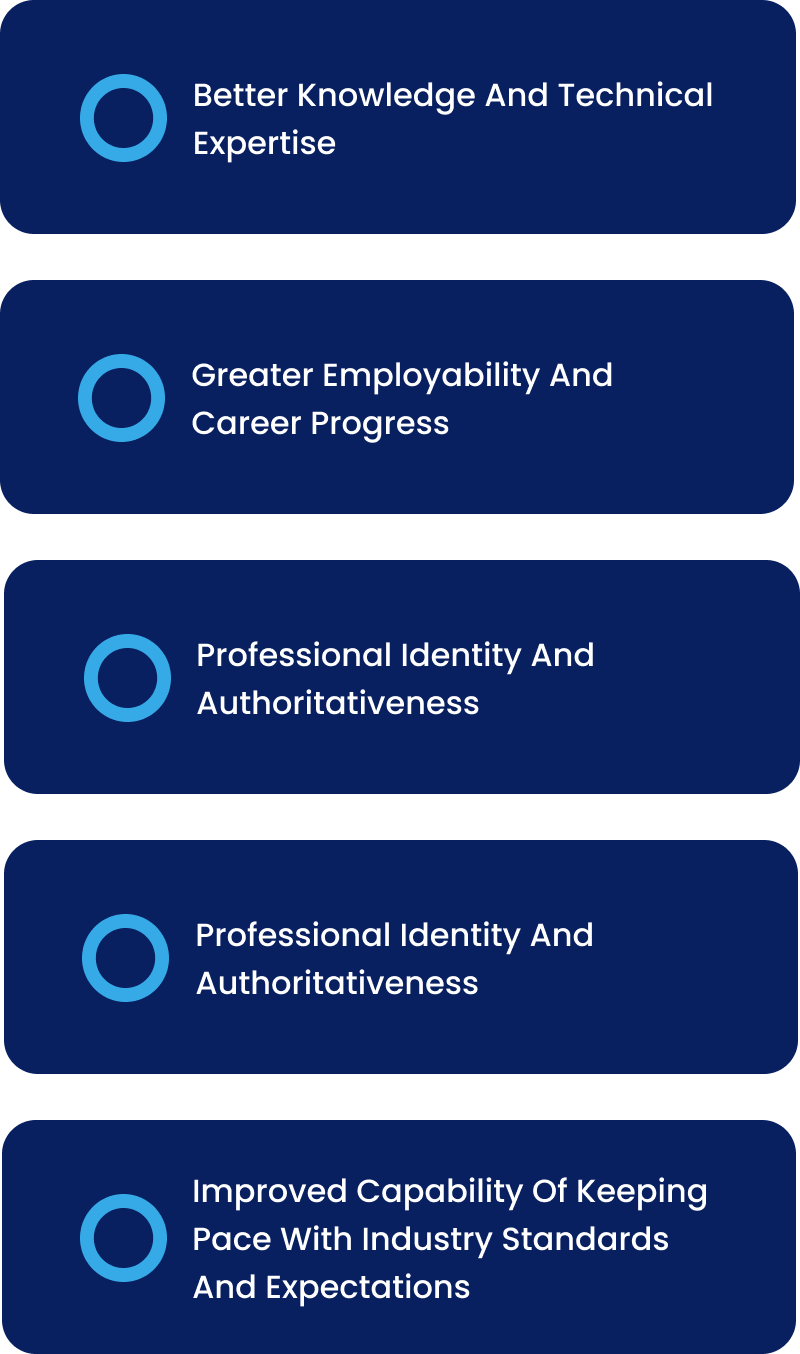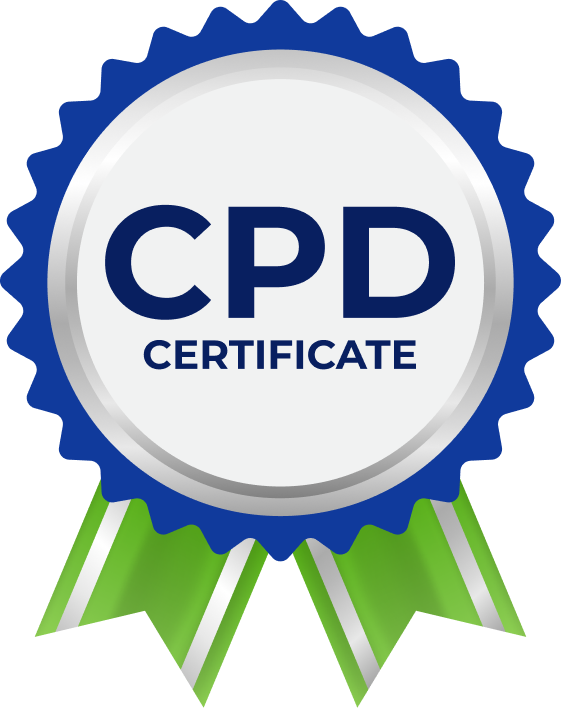What is CPD?
Continual Professional Development (CPD) is the process of constantly acquiring and enhancing professional skills, knowledge, and competence during a professional career. It involves lifelong learning that makes professionals effective and up to date in their industry or sector.
You may want to know what CPD is in simple terms. It is about being proactive in terms of learning. CPD is not confined to any qualification; it extends to self-directed learning, attending seminars, taking online courses, and taking part in projects at the workplace that will uphold your skill set.

Purpose of Continuing Professional Development
Continual Professional Development is primarily made to encourage constant learning and improvement. In today’s fast-evolving business environment, it is essential to remain abreast of the latest standards, tools, and practices in order to be successful in the long run. CPD also provides people with an incentive to constantly develop their skills so that their competence is always up to date.
CPD assists professionals in education and training, as well as in health and business sectors, to remain credible and dedicated to excellence. No matter if you are pursuing a qualification of the Level 4 Award in Understanding the Internal Quality Assurance of Assessment Processes and Practices, or refining your practical approaches using holistic assessment methods, CPD will help you continue to develop your professional skills.

Types of CPD Activities
CPD activities are of numerous types; hence, professionals can study according to their needs and objectives. The three major types include structured/active, unstructured/passive, and self-directed learning.
Structured CPD
Structured CPD entails structured learning that has clear goals – workshops, seminars, formal courses, or online qualifications. For instance, successfully going through an accredited programme such as Assessor Training also qualifies as structured CPD because of its defined learning outcomes and assessment.
Unstructured CPD
This form of CPD comprises informal learning processes like reading articles relevant to the industry, networking, or even watching educational videos. Professionals acquire this insight in these activities without a set curriculum.
Self-Directed CPD
Self-directed learning is about making personal learning objectives and searching for what to use in order to accomplish the objectives. It should be used when one prefers flexibility and wishes to pursue matters of interest at his/her own pace.
How to Create an Effective CPD Plan?
The development of a CPD plan assists professionals in remaining purposeful in their development. The plan should state the existing strengths and the areas that need to be improved. When you know what you want to do, you can plan the activities and resources effectively.
For instance, a training professional may intend to undertake a qualification in Internal Quality Assurance or even participate in workshops on the current learning techniques; it totally depends on what he wants to do. The plan would also include timelines, milestones, and ways of evaluation to make a gradual process. Setting realistic goals and reviewing them regularly helps transform CPD from a simple checklist into a continuous learning strategy.
Tracking Progress with a CPD Record or Tracker
Maintaining a CPD record or using a CPD tracker is essential to record activities and progress in learning. It enables professionals to document what is learnt, reflect on the results, and provide evidence of development where necessary.
A CPD tracking system usually consists of sections such as goals, activities done, date, and reflections. There are several sectors that require professionals to provide CPD records for audits or for promotions. With an online CPD tracker, it becomes much easier, and it is easy to document all your accomplishments and review them.
Benefits of CPD for Professionals
CPD is more than just acquiring new qualifications; it is also about confidence, enhanced job performance, and further progression in the career. CPD will make you relevant, flexible, and prepared to take up new challenges. Major benefits of CPD include


To organisations, Support of CPD leads to a better and more engaged workforce, which means increased productivity and improved outcomes.
Earning CPD Certification
Getting a CPD certification will prove that you are committed to learning and growing professionally. It acts as the official acknowledgement that, as an individual, you have engaged in an organised CPD activity or course that uses professional parameters.
CPD certifications are very well favoured in every sector, whether it’s education, healthcare, or business. The certificate also serves as a means for skills validation and demonstrating your commitment to constant improvement to the employer.

Why CPD Matters for Career Growth
CPD is not just professional development; it’s an investment in your future. In the job markets that are everywhere and are tough to compete in, people who are constantly updating their skills and showing initiative in their learning journey are the ones that employers value the most.
Keeping a CPD record that is always updated and often reviewing your CPD plan means you are a person with steady growth, and this will also allow you to walk into leadership roles. Whether you are a beginner or advancing your qualifications, CPD gives you the power to be competent, confident, and credible. If you want to take CPD-accredited courses, please do not hesitate to contact us at info@brightpathway.co.uk.



